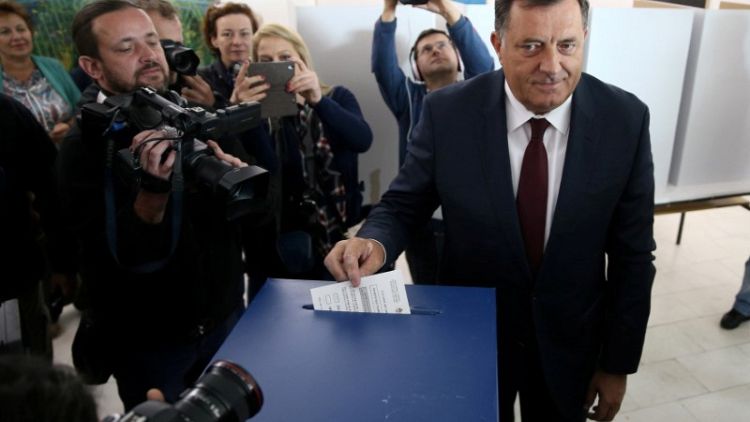GENEVA (Reuters) - Outgoing United Nations human rights chief Zeid Ra'ad al-Hussein condemned a decision by the Bosnian Serb parliament to revoke a 2004 report on the Srebrenica massacre and called on lawmakers to reconsider the move which he said will damage reconciliation.
"The High Commissioner warns that the revocation will only serve to feed into the divisive, nationalistic rhetoric ahead of the general elections in October, and will disrupt any attempts to work towards reconciliation," U.N. human rights spokeswoman Ravina Shamdasani said on Friday.
The parliament of Bosnia's autonomous Serb Republic had on Tuesday voted in favour of the regional government reversing its previous acceptance of a report establishing that up to 8,000 Muslim Bosniaks were killed in and around Srebrenica in the weeks following the Bosnian Serbs' capture of the former U.N.-protected enclave in July 1995. [L5N1V561Q]
The government has confirmed it will carry out the revocation in coming days.
The motion in parliament was initiated by Serb Republic President Milorad Dodik and some analysts say it is the latest issue used by Serb ruling parties to mobilise voters around his nationalist agenda ahead of elections on Oct. 7.
More than two decades after Bosnia's 1992-1995 war ended, splitting the country into two ethnically-based regions, the Serb Republic and the Bosniak-Croat Federation, ethnic tensions remain high, halting progress towards membership of NATO and the European Union.
Serbs in Bosnia and neighbouring Serbia reject rulings by two war crimes courts, the International Criminal Tribunal for the Former Yugoslavia (ICTY) and the International Court of Justice, that the atrocity qualified as genocide.
"The High Commissioner fears that tensions, divisions and mistrust already perpetuated by some public and political officials and media organisations in Bosnia could be aggravated by this decision – which appears to be designed for political gain," Shamdasani said. "He calls on the Republika Srpska to revisit the decision."
The U.S. State Department said on Wednesday the vote was "a step in the wrong direction", aiming to revise the facts of the war, deny history and politicize tragedy.
(Reporting by Stephanie Nebehay; Writing by Daria Sito-Sucic in Sarajevo; Editing by David Holmes)
